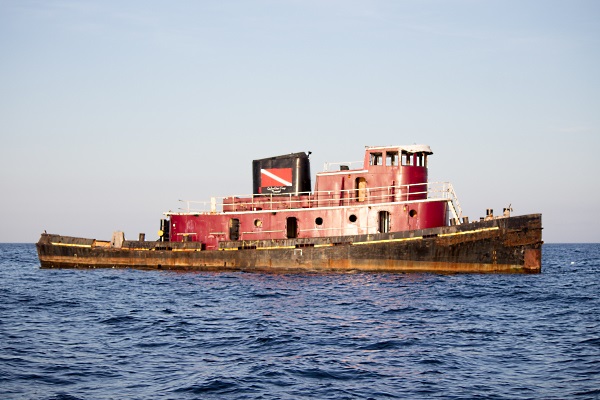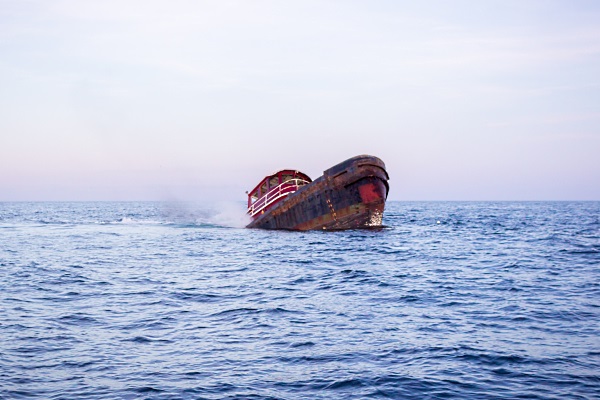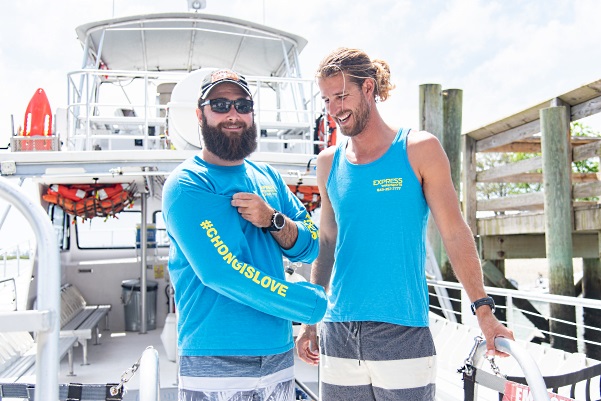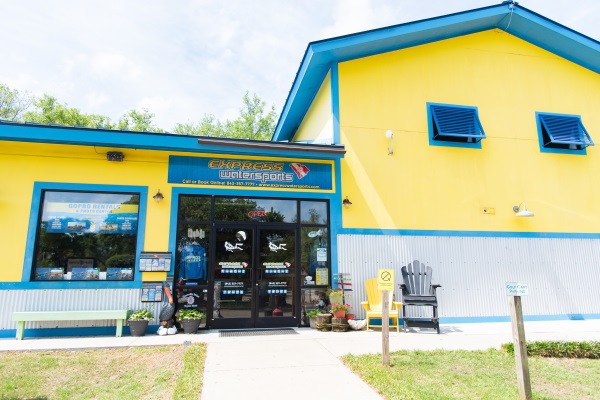May 2, 2019
On calm seas yesterday, a 103-foot tugboat was sunk 20 miles off the coast of the Grand Strand.
The new addition to the Bill Perry Jr. Artificial Reef will create fish habitat and a destination for diving enthusiasts, but for the crowd watching, the reef holds personal meaning as a memorial for a young diver.
Chris Chong was a Murrells Inlet captain and diver who passed away in a diving accident in late 2017. A graduate of Coastal Carolina University, Chong started as an intern with Express Watersports and went on to get his captain's license and become a dive instructor for the company. His friends recall his adventurous spirit and warm nature with fondness.




“He was a golden guy and a true friend to everyone in this area,” said Captain Andrew Raak, a friend and colleague of Chong’s.
Chong’s family and friends rode out with South Carolina Department of Natural Resources (SCDNR) biologists on Wednesday to witness the sinking of a retired Charleston tugboat called J.P. McCallister in Chong’s honor. The Captain Chris Chong Memorial Reef is an apt tribute, friends say.
“Diving is what Chris had sincere passion for, and to see a reef commemorated in his name goes way beyond any of his or our wildest expectations,” Raak said. “He’s left a lasting memory in our hearts, and now he’ll have a lasting memory here off the South Carolina coast.”
Artificial reefs play a similar role in the ocean as coral reefs, which cannot grow in the temperate waters off the coast of South Carolina. These human-built structures are typically placed on areas of seafloor with little natural relief, improving habitat and spawning grounds for a diverse array of fish and marine life – and in turn attracting recreational divers and anglers.
SCDNR has been constructing artificial reefs to improve offshore fish populations and recreational opportunities for over forty years, sinking everything from bridge spans to military vehicles to subway cars. The environmental benefits of artificial reefs are twofold, as they recycle materials that would otherwise be destined for landfills in addition to expanding critical habitat for offshore fish. Structures intended for artificial reefs undergo a long and rigorous cleaning process to ensure they’re safe to sink.
“New artificial reef structures like this really create positive benefits for everyone. Not only will it provide a lasting memorial for Chris and productive new habitat for numerous fish species, it will also generate economic benefit for the area as people come to visit this site” said Bob Martore, SCDNR’s artificial reef coordinator.
“It’s very fitting,” adds Travis Lane, one of Chong’s closest friends. “He would go miles for you, and now people will come miles for this.”
South Carolina is home to dozens of artificial reef sites, the location data for which are free to download to your marine GPS device.



